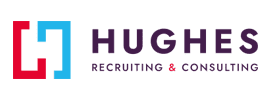After sending in multiple applications through different job search platforms, you finally receive the email you’ve been waiting for: an invite to a scheduled interview. Congratulations! Here comes your opportunity to convince the hiring manager you’re the right person for the job.
But how exactly can you convince them? The key is to give noteworthy answers that effectively showcase your qualities as a potential employee. This starts by understanding the purpose behind common interview questions and learning how to best tackle them.
Read more: How to Prepare for an Interview
10 Common Interview Questions and How to Best Respond
Aside from your appearance and demeanor, the best way to impress your interviewer is to give memorable and insightful responses. You can do this by fully understanding the interview questions, as well as why they were asked. These two things can guide you in creating an effective response during your job interview.
Read more: What to Bring to Your Interview at Hughes Resources
To help you prepare, the following are examples of common job interview questions and how you might respond:
1. What can you tell me about yourself?
This question serves as an icebreaker and allows interviewers to gain a broad overview of your background. Its aim is to generate more context behind the experiences and qualifications you wrote on your resume.
The most effective way to respond to this question is to provide a summary of your professional journey. You may include your educational attainments but focus on highlighting key experiences relevant to the role you’re applying for. Call attention to your most recent positions and the skills you learned from them.
Once you’ve provided a summary, conclude with your interest in their company’s open position. Explain the reason behind your interest, maintaining a professional tone of voice and demeanor.
Read more: Mastering Video Interview: Techniques that Help You Stand Out
2. How would your friends and colleagues describe your work style and personality?
Aside from learning what other people may think of you, this question gives interviewers insight into your self-awareness. The question aims to give your potential employers an idea of how well you accept criticism and if you’ll be a good fit for their culture or work environment.
To respond effectively to this question, you need to first reflect on feedback you’ve received from your friends and coworkers. Begin by discussing the positive traits they’ve mentioned that are relevant to the job. These can be hard skills (great at project management) or soft skills (collaborative, detail-oriented). You can also give examples of how these traits manifest during your work or day-to-day life.
Naturally, not all feedback is positive. To avoid coming across as overconfident or deceptive, you can also mention some less positive traits observed by your colleagues or friends. This adds credibility to your statement but be sure to balance this knowledge with how you are addressing this weak point.
3. What do you like to do in your spare time?
This question helps the interviewer understand you as a whole person and assess whether you’ll be a good fit for the company. It’s also used to look for signs of a well-rounded individual who can strike a balance between their personal and professional lives.
When responding, share hobbies that showcase positive qualities applicable to the workplace. For example, you might say you are interested in continued learning. You could also be into creativity or crafts. Polish your responses by adding the skills or benefits gained from the activities.
4. What are your strengths and weaknesses?
Interviewers ask about strengths to understand what you excel at. They’re trying to know how your skills align with the job’s requirements. Meanwhile, weaknesses are used to gauge your self-awareness and ability to improve.
When discussing your strengths, focus on those most relevant to the position. Provide specific examples of how these traits have helped you in the past. For your weaknesses, choose something that isn’t critical to the job. More importantly, take time to explain the steps you’re taking to improve. This demonstrates your commitment to personal growth and development.
Read more: Why Aren’t You Getting Hired? 14 Factors that Hold You Back
5. Of your previous roles, which is your favorite and why?
The goal of interview questions like this is to understand your motivators. It also dives into the type of environment or management style you usually thrive in. This helps interviewers create alignment between what you enjoy and what the open role offers.
The key to an effective response here is research. Based on your knowledge of the position, choose a previous job that has elements similar to the job you’re applying for. Be specific in explaining what you enjoyed about the work experience. Focus on aspects related to work, company culture, or professional growth. Take this as your chance to indirectly reinforce your interest and excitement for the role you’re applying for.
6. Where do you see yourself in 5 years?
Recruiters are always on the lookout for ambitious professionals who can commit to their roles. They also want to find employees whose career goals match their company’s long-term objectives.
When responding to this question, consider the typical career paths related to the role you’re applying for. Express enthusiasm for growing with the company. Your answer doesn’t have to be very detailed or specific. Instead, it should be ambitious but still realistic.
7. What do you know about our company?
Aside from knowing your own strengths and long-term goals, you need to be knowledgeable about the company you want to join. Interview questions like this are meant to test your level of preparation and genuine interest in joining the company.
The only way to effectively respond to this is to conduct thorough research before the interview schedule. Focus on the services and products they offer. Understand their values as well as their mission and vision. You can also take note of recent news or achievements the company accomplished.
8. How well do you understand the position you’re interviewing for?
Interviewers ask this question to ensure you have a realistic grasp of the role and its responsibilities. They want to see if your expectations align with what the job actually entails.
Make sure you understand the job descriptions and qualifications before the interview. List any questions you might have prior to the interview. When responding, summarize your understanding of the key responsibilities. If you can, mention how the role fits into the broader goals of the department or company. If there are aspects you’re unsure about, it’s okay to ask for clarification. This shows that you’re thorough and genuinely interested in fully understanding the role.
9. What training and experiences have prepared you for this role?
This question aims to assess whether you’re truly qualified for the role. Beyond your previous title, what are the training programs, professional achievements, and past experiences that can help you thrive if given the job offer?
To answer this interview question, focus on the most relevant aspects of your background. Highlight specific projects, responsibilities, or achievements that directly relate to the key requirements of the position. Discuss any formal training, certifications, or educational milestones that shaped your current skill set.
If you’re transitioning from a different field, emphasize transferable skills and explain how your unique background could bring fresh perspectives to the role. Remember to use concrete examples to illustrate how your experiences and training have equipped you to excel in this position.
10. Can you describe a situation in which you had to handle conflict?
Behavioral interview questions are quite common during the interview process. They assess how you handle difficult situations and can often be considered a predictor of future performance.
This specific interview question focuses on your interpersonal skills and problem-solving abilities. Interviewers who ask this question want to know how you handle stress during conflict resolution. They also want to understand your capacity to maintain professional relationships in difficult circumstances.
When responding to this specific query, use the STAR method. STAR stands for Situation, Task, Action, and Result. Describe a specific conflict and provide context. Explain your role in that scenario and detail the actions you took to resolve the issue. End your response by sharing positive outcomes and emphasize what you learned from the experience.
Connect with your ideal company through Hughes Resources.
Are you looking for your dream job but getting tired of the constant job search? Hughes Resources is here to help. As a staffing agency with hundreds of job openings in the Southern Wisconsin and Northwestern Illinois area, we are confident in our ability to find the perfect fit for you.
Allow us to match your skill set and ideal work with a company that needs you. Contact us today to learn more!
Last updated on November 6, 2024.
References:
- Dalton, Michael R., and Jeffrey A. Groen. “How Do Jobseekers Search for Jobs? New Data on Applications, Interviews, and Job Offers.” U.S. Bureau of Labor Statistics, 12 Nov. 2020, www.bls.gov/opub/btn/volume-9/how-do-jobseekers-search-for-jobs.htm.
- Team Jobvite. “7 Benchmark Metrics to Improve Your Recruiting Funnel.” Jobvite by Employ, 15 Aug. 2024, www.jobvite.com/blog/recruiting-funnel/.


























